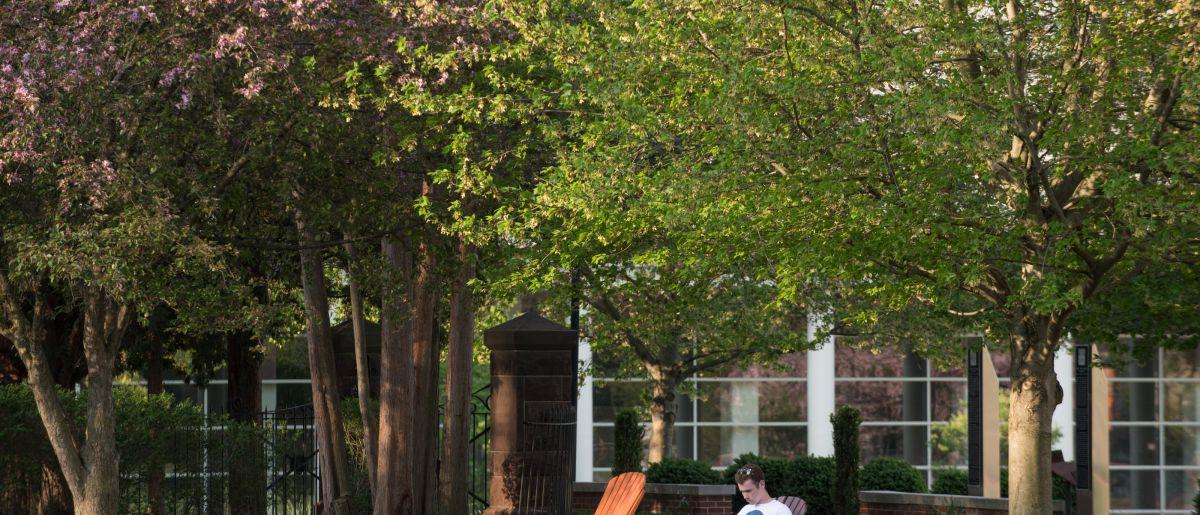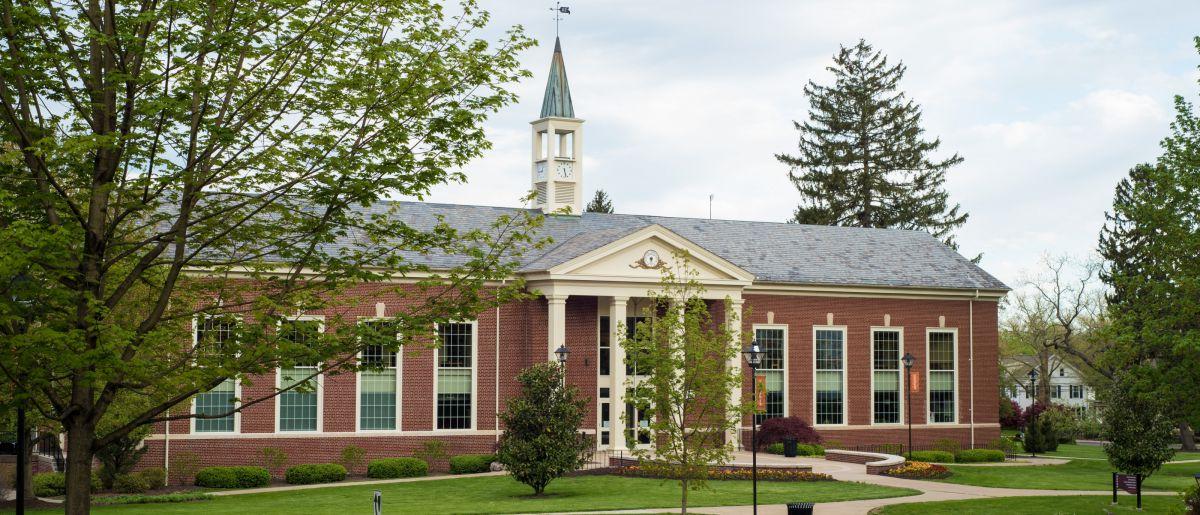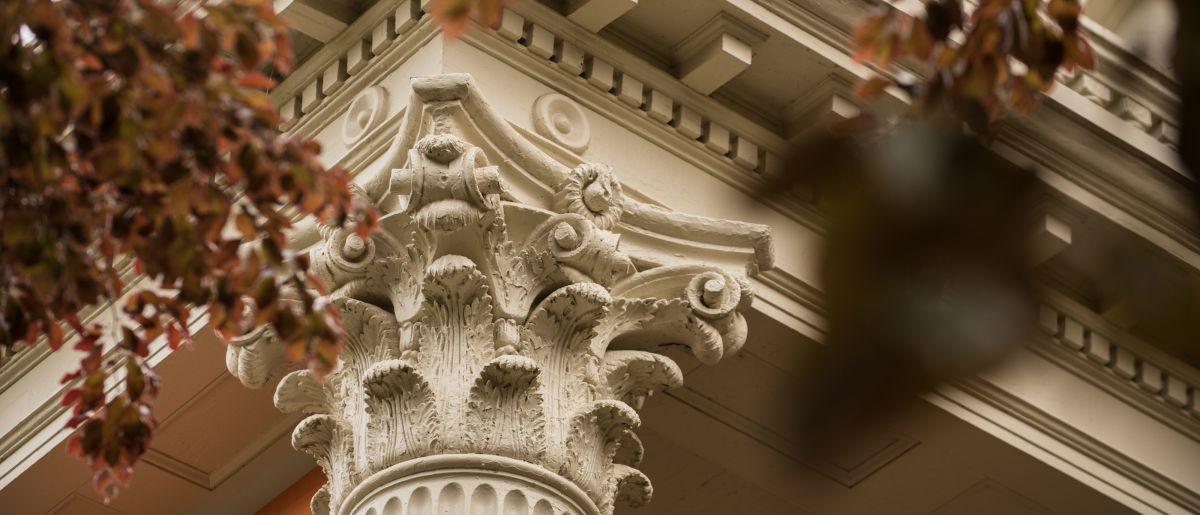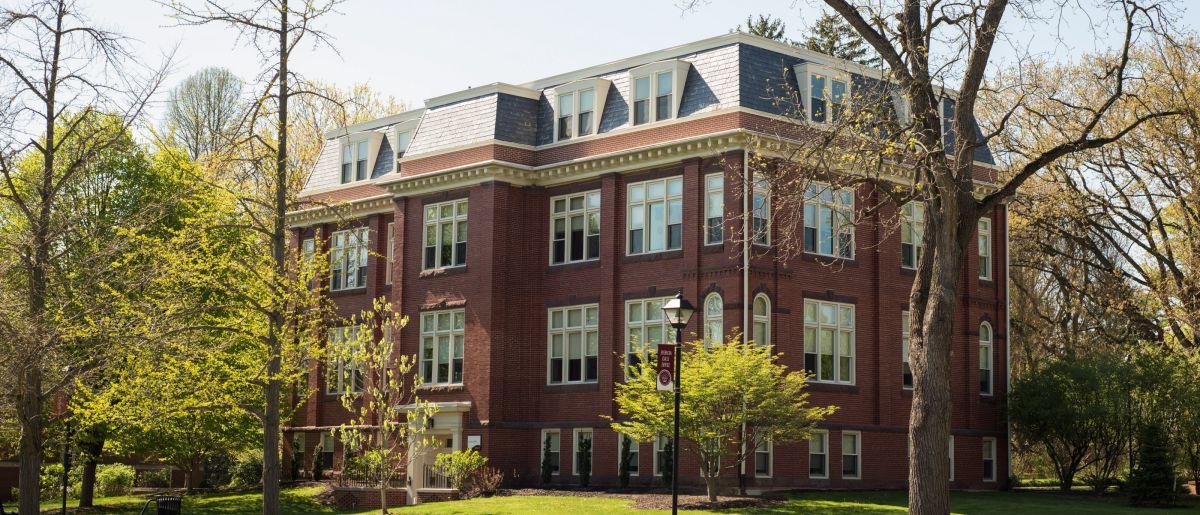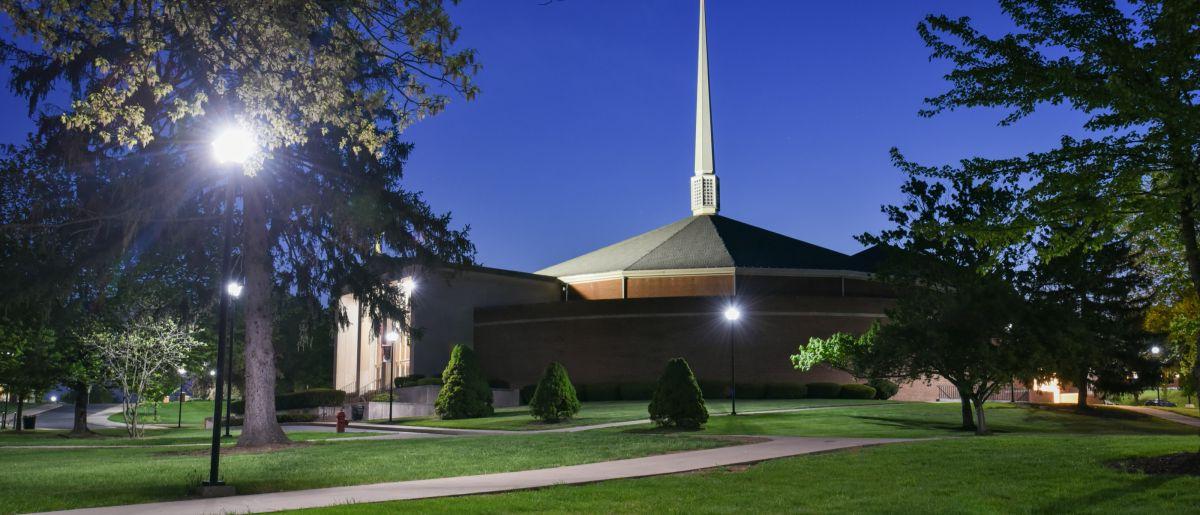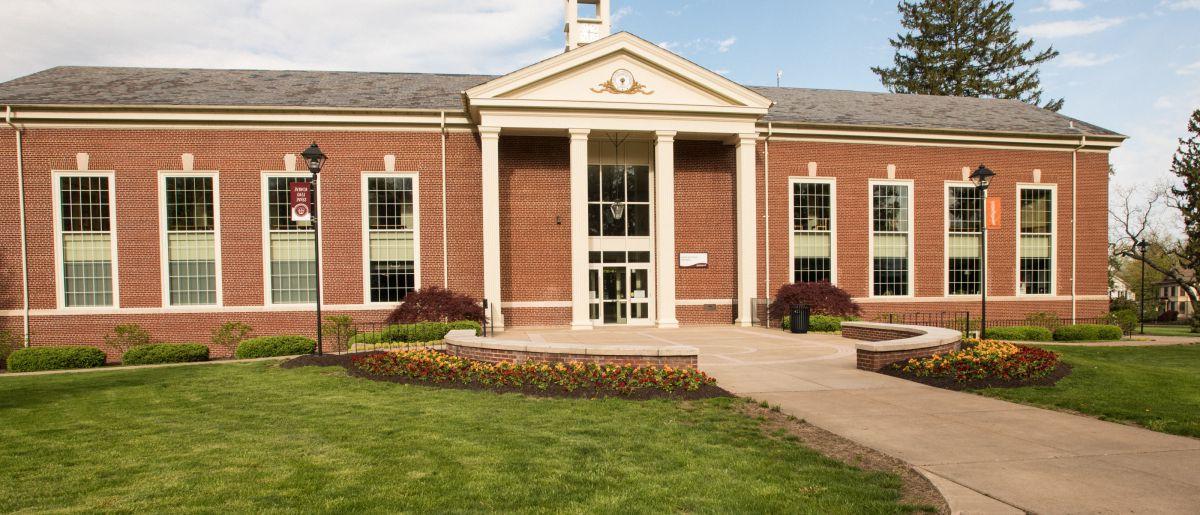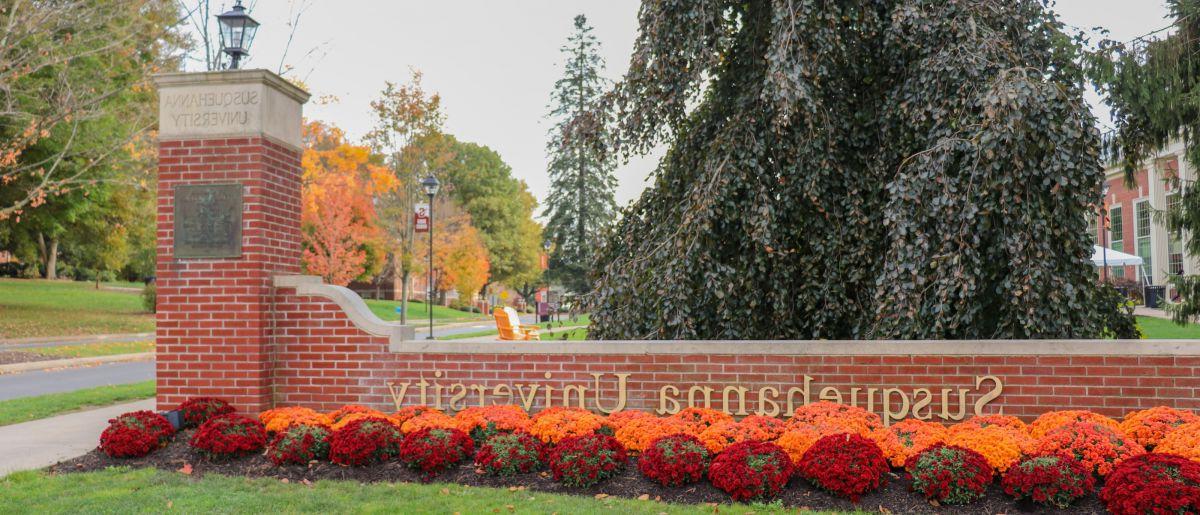The residential, liberal arts college is dedicated to research, teaching, and service. Susquehanna University encourages open, on-going intellectual engagement and debate by members of the University community through civil, mutually respectful interactions that preserve the openness of public dialogue and debate. As such, the right to dissent is essential to academic freedom and scholarly pursuits. Susquehanna expects all members of the community to be respectful of each other and to contribute in positive ways to an orderly and civil exchange of diverse ideas and opinions. Susquehanna wants all community members to feel welcome and safe in an environment dedicated to the critical discussion of complex and challenging ideas. Accordingly, Susquehanna University permits University students to assemble and express views on campus subject to this policy, consistent with its mission and its commitment to protecting campus buildings, grounds, and facilities.
All University students must adhere to these specific guidelines when engaging in peaceful assembly and protest on campus. Examples of types of peaceful assembly covered by this policy include (please note that this is not an exhaustive list):
- Demonstration – A large group of people, usually gathering for a cause. It often includes a group march, ending with a rally or a speaker. A demonstration is similar to a protest in that they both can use the same or similar methods to achieve goals.
- March – A walk by a group of people to a place in order to express an objection with any event, situation, or policy
- Picket Line – A line or group of people who are refusing to go to work until their employer agrees to certain demands
- Protest – A protest is an organized way to express objections with any event, situation, or policy. These objections can be manifested either by actions or by words.
- Sit-In – Any organized protest in which a group of people peacefully occupy and refuse to leave university premises.
- Vigil – An observance of commemorative activity or event meant to demonstrate unity around a particular issue or concern, and/or to promote peace and prevent violence.
These forms of expression are permitted on campus so long as they are orderly, lawful, do not disrupt or interfere with the regular operations or authorized activities of the University, and comply with the requirements of this policy and all other policies within the Student Handbook.
The following guidelines apply to all types of assembly and protest on campus by University students:
Notification
- To ensure safety and the orderly functioning of the University, assembly and protest should be registered no later than five (5) business days before the assembly/protest through the Events Management Office. If for some extraordinary reason organizers cannot submit a notification five (5) business days prior to the assembly or protest, the regular operations and special functions of the University must be respected, and organizers still must notify the Events Management Office prior to the assembly or protest.
- Upon receiving written notification, a University representative will offer to meet with organizers to provide appropriate support and resources to mitigate risk and protect participants’ ability to assemble and protest. Notifications received fewer than five (5) business days before the assembly may be reviewed subject to staff availability; however, support and resources may be limited.
Time
- Indoor assemblies and protests must occur within the hours of normal operations for the facility or space in which they occur (if applicable). Buildings will not be kept open beyond regular hours to accommodate assemblies.
- Assemblies are prohibited during final exams.
- Assemblies cannot extend past 12 a.m. (midnight) or a time determined by an authorized University official, whichever is earlier.
Place
- Students may hold peaceful assemblies and protests in any venue that can be reserved for events.
- Assemblies may not take place in any space that has been concurrently reserved or scheduled by other members of the University community or guests.
- It is not permissible to occupy or assemble in University offices for purposes of engaging in expressive activities.
- Assemblies and protests may not impede the free flow of pedestrian or vehicular traffic, block thoroughfares, or obstruct campus building/office/room entry or exit points.
- The University makes the final determination on the most appropriate venue for assemblies and protests.
Manner
- All forms of assembly and protest should not disrupt or interfere with the normal operations of the University or with the ability of other members of the community to engage in and benefit from the programs and services of the University, and must adhere to all other applicable policies.
- Protesters will conduct themselves in a peaceful and orderly manner and should not disrupt classes, meetings, assemblies, or academic pursuit.
- When assemblies and protests occur in the context of a speaker on campus, audience members should behave in a civil manner and not infringe upon others’ ability to view or hear the speaker.
- Protesters should respect the rights of all people, property, and the environment and should not represent a threat to campus safety or physical property.
- Assemblies and protests may not take place in a manner that violates the law, defames any individual, constitutes a genuine threat or harassment, or incites violence.
- While participating in an assembly, individuals are prohibited from possessing or utilizing objects and/or apparel that could present a threat to the health or safety of the campus community including, but not limited to, weapons, pepper spray, mace, torches, helmets, or protective armor or gear or similar items that could cause injury or harm to others, whether intentionally or unintentionally.
- Assemblies and protests may not utilize amplified sound in a manner that interferes with classes or other events in progress.
- Individuals engaged in an assembly may not claim to speak for or otherwise represent the position of the University, unless officially sanctioned by the University. Sanctioning occurs as part of the Notification process described above.
Failure to comply with this policy or with the direction of law enforcement or University officials can result in removal from the event and referral to the student code of conduct process. The University may interrupt or stop any assembly or protest that violates this policy or other policies or the Student Handbook. A decision to interrupt or stop an assembly or protest is final. If an assembled group does not voluntarily disperse when warned that its behavior is unacceptable, the University may request that the Office of Campus Safety or local law enforcement take action to restore order to the University.
Persons and groups who are not members of the University community (i.e., persons who are not University students, faculty, administrators, or staff) are not permitted to engage in assembly or expression on campus. Their presence on campus is contingent on their compliance with the University’s policies and procedures, and they must leave the campus if directed to do so at any time for any reason by any authorized official of the University. The University will not allow non-University groups to hold protests on campus property or at University events. Failure to accept the directions of authorized University officials may render nonmembers of the University community liable to action by local law enforcement.
